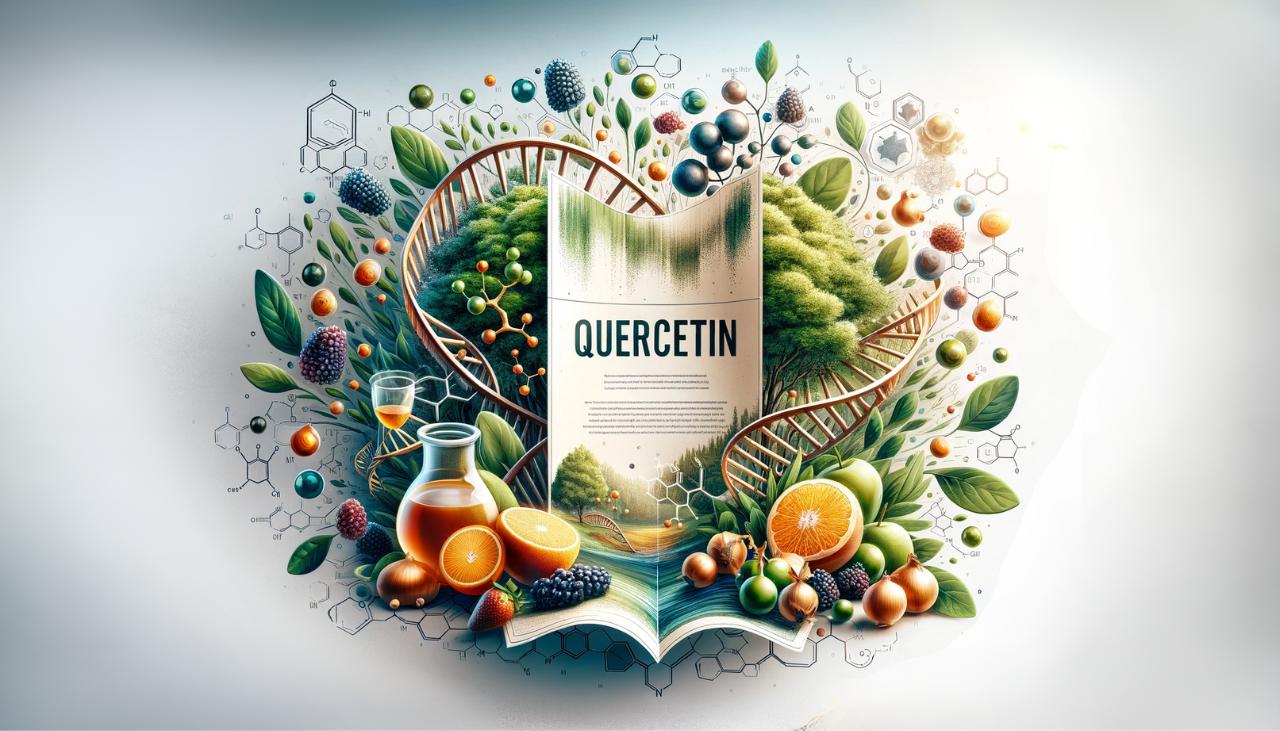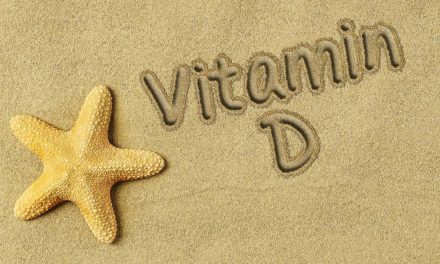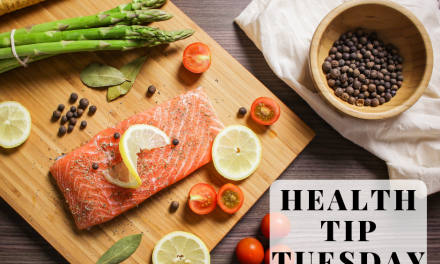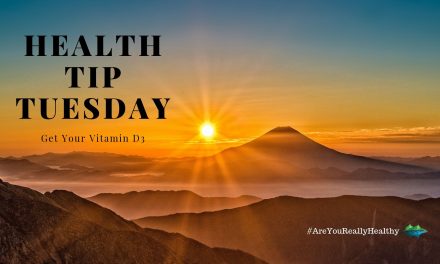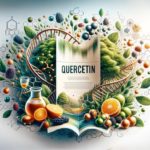Summary Bullets:
- Discover the hidden superhero for your immune system: Quercetin, a powerful compound with remarkable anti-inflammatory, antioxidant, and antiviral properties.
- Uncover the best sources of Quercetin in nature’s bounty, including citrus fruits, apples, berries, onions, leafy greens, and even red wine, to maximize its immune-boosting potential.
- Find out the ideal daily intake of Quercetin, factors that affect its absorption, and whether supplements are right for you. Read on to unlock the full story and empower your immune system with Quercetin!
In these uncertain times, everyone seems to be in search of that magic pill that will strengthen their immune system. Fortunately, you don’t have to guess anymore—Quercetin is here to save the day! This powerful compound has taken the health world by storm, and for good reason. Read on to discover the invaluable benefits of Quercetin for immune health, the best sources to obtain it, the ideal daily intake, and the factors that affect its absorption.
Quercetin and Its Immune Benefits
Quercetin is a natural plant compound belonging to the flavonoid group, which is abundant in many fruits, vegetables, and plant-based foods such as onions, apples, berries, kale, and citrus fruits. It is known for its numerous health benefits, particularly in supporting the immune system.
- Antioxidant properties: One of the major roles of quercetin is its powerful antioxidant activity. Antioxidants help to neutralize harmful free radicals in the body, reducing oxidative stress and protecting cells from damage. By preventing oxidative stress, quercetin can help strengthen the immune system and promote overall health.
- Anti-inflammatory effects: Quercetin has been found to possess strong anti-inflammatory properties. Chronic inflammation can weaken the immune system and make us more susceptible to infections and diseases. Studies have shown that quercetin can help reduce the production of pro-inflammatory molecules, thus helping to regulate and decrease inflammation in the body.
- Immune system booster: Quercetin has been shown to modulate the immune system, enhancing its ability to fight off harmful pathogens. It can help regulate the production and activity of immune cells, such as T-cells and natural killer cells, which play a crucial role in defending the body against infections.
- Antiviral activity: Quercetin has also been found to possess antiviral properties, particularly against respiratory viruses. It works by inhibiting viral enzymes, preventing viral replication, and reducing the severity of respiratory symptoms. This makes it a popular supplement choice, especially during cold and flu seasons.
- Allergy relief: Quercetin may help alleviate allergy symptoms by stabilizing mast cells that release histamine, a compound responsible for triggering allergic reactions. By reducing histamine release, quercetin may help with symptoms like sneezing, watery eyes, and nasal congestion associated with allergies.
- Cardiovascular health: Quercetin has been studied for its potential benefits in promoting heart health. It may help lower blood pressure, reduce LDL (bad) cholesterol levels, improve blood vessel function, and reduce the risk of cardiovascular diseases. By maintaining cardiovascular health, the body can better support immune function.
- Brain health: Emerging research suggests that quercetin could have neuroprotective effects and may help improve cognitive function and protect against neurodegenerative diseases such as Alzheimer’s and Parkinson’s. Its antioxidant and anti-inflammatory properties may play a role in preserving brain health.
Best Sources of Quercetin:
If you’re looking to incorporate more quercetin into your diet, there’s a variety of delicious foods that are excellent sources of this beneficial flavonoid. By including these quercetin-rich foods into your meals and snacks, you can naturally boost your intake and reap the immune benefits it provides. Here are some of the best sources of quercetin:
- Citrus fruits: Citrus fruits like oranges, grapefruits, lemons, and limes are not only packed with vitamin C but are also good sources of quercetin. Adding these fruits to your diet can provide you with a refreshing and tangy way to increase your quercetin intake.
- Apples: Apples are not only a healthy and easily available fruit but also a great source of quercetin. Leave the skin on when you enjoy your apple, as it contains a significant amount of quercetin. Choose a variety of apples to add some variety to your diet.
- Berries: Berries like strawberries, blueberries, raspberries, and blackberries are not only delicious but are also rich in quercetin. These antioxidant-packed fruits are versatile and can be enjoyed in smoothies, oatmeal, yogurt, or simply as a healthy snack.
- Onions: Onions, especially red onions, are a potent source of quercetin. This versatile vegetable can easily be incorporated into various dishes, from salads and stir-fries to soups and stews. Enjoy them raw or cooked to add a distinct flavor and a boost of quercetin to your meals.
- Leafy greens: Dark leafy greens such as spinach, kale, and Swiss chard are not only excellent sources of various vitamins and minerals but also contain quercetin. These greens can be enjoyed in salads, steamed, sautéed, or added to smoothies for a nutritional boost.
- Red wine: If consumed in moderation, red wine can provide a good dose of quercetin. Red wines like Pinot Noir and Cabernet Sauvignon tend to have higher quercetin levels. Remember, however, to enjoy red wine responsibly and within recommended limits.
It’s worth noting that the quercetin content in foods may vary depending on factors such as ripeness, processing, and cooking methods. To preserve the highest levels of quercetin, opt for fresh, minimally processed foods and use gentle cooking methods like steaming or lightly sautéing.
While obtaining quercetin from dietary sources is generally safe, if you’re considering taking quercetin supplements, it’s advisable to consult with your healthcare provider to ensure proper dosage and avoid any potential interactions with medications or pre-existing conditions.
By incorporating these quercetin-rich foods into your everyday diet, you can naturally boost your quercetin intake and support your immune system’s ability to fight off harmful pathogens while enjoying a flavorful and nutritious menu.
Daily Intake and Supplements:
When it comes to quercetin intake, it is recommended to consume around 500-1000 milligrams per day to harness its immune-boosting benefits. This dosage range is generally considered safe for most individuals, but it’s important to note that individual needs may vary based on factors such as age, weight, and overall health.
Meeting your daily quercetin requirements through a well-balanced diet is usually the best approach. However, if you struggle to consume enough quercetin-rich foods, supplements can be a convenient option to ensure an adequate intake. Quercetin supplements typically come in capsule or tablet form and are widely available in health food stores and online.
When considering quercetin supplements, it’s crucial to consult with a healthcare professional, especially if you have any pre-existing conditions or are taking medications. They can provide personalized advice and determine whether or not quercetin supplementation is suitable for you. They can also guide you on the appropriate dosage based on your individual needs.
Additionally, it’s important to choose high-quality supplements from reputable brands to ensure purity, potency, and safety. Look for products that have undergone third-party testing and adhere to good manufacturing practices (GMP).
While quercetin supplements can be beneficial for those who struggle to meet their daily requirements through diet alone, it is generally recommended to prioritize a balanced and varied diet rich in quercetin-rich foods. Whole foods offer additional nutrients, fiber, and other compounds that work synergistically with quercetin to support overall health and immune function.
In conclusion, aiming for a daily intake of 500-1000 milligrams of quercetin can help optimize immune function. While getting quercetin from food sources is ideal, supplements can be helpful for individuals who find it challenging to meet their daily needs. Always consult with a healthcare professional before incorporating any supplements into your routine to ensure safe and appropriate usage.
Factors Affecting Quercetin Absorption:
Quercetin absorption can be influenced by several factors, and understanding these can help maximize its benefits. Here are some key factors to consider:
- Presence of other compounds: Quercetin absorption can be enhanced or hindered by the presence of other compounds. Consuming quercetin-rich foods alongside healthy sources of fat, such as avocados or olive oil, can aid in its absorption. Fat-soluble compounds like quercetin are better absorbed when consumed with dietary fats.
- Interaction with calcium: It’s important to be mindful of consuming quercetin together with calcium-rich foods or supplements. Calcium can interfere with the absorption of quercetin, so it’s best to avoid consuming them together. If you’re taking a quercetin supplement, it’s advisable to take it separately from any calcium supplements.
- Gut health and microbiome: The health of your gut plays a significant role in the absorption of quercetin. Quercetin is metabolized by gut bacteria into various forms, which can affect its absorption and bioavailability. It’s important to maintain a balanced gut microbiome by incorporating probiotics, fiber-rich foods, and fermented foods into your diet. These can promote the growth of beneficial gut bacteria that can help optimize quercetin absorption.
- Solubility and processing: The solubility and form of quercetin can impact its absorption. Quercetin aglycone, the free form of quercetin, is more readily absorbed compared to quercetin glycosides – the form bound to sugar molecules. Some supplements offer quercetin in the aglycone form, which may have higher bioavailability. Additionally, the processing and cooking methods of foods can also affect the availability of quercetin. Gentle cooking methods like steaming or lightly sautéing may help preserve more quercetin compared to prolonged high-heat cooking.
While these factors can influence quercetin absorption, it’s worth mentioning that quercetin supplements are typically formulated to enhance absorption. These supplements often include other compounds that assist in quercetin uptake, such as bromelain (an enzyme found in pineapple) or piperine (a compound from black pepper).
As with any dietary consideration, it’s always beneficial to consult with a healthcare professional or registered dietitian to address any specific concerns or individual needs related to quercetin consumption and absorption.
Now armed with knowledge about the incredible benefits of Quercetin for immune health, you can confidently take control of your well-being. By incorporating Quercetin-rich foods into your diet, being mindful of the recommended daily intake, and considering factors that affect absorption, you can harness the extraordinary power of Quercetin. Remember, a healthy immune system is your best defense against the unpredictable challenges life throws your way. So, make Quercetin your ally and embrace a healthier, immune-ready lifestyle.
Disclaimer: This post is for informational purposes only and should not replace professional medical advice. Always consult with a healthcare professional before making any changes to your diet or supplement routine.
Ready to shield yourself from illness and boost your immune system? Discover the power of Quercetin today! Click here for more information about Immune Essentials Daily – the ultimate 6-in-1 immune supplement you won’t want to miss!
